The Australian Government is now in caretaker period. During this time, updates on this website will be published in accordance with the Guidance on Caretaker Conventions, until after the election.
Latest news and stories
NHMRC Media

Reducing trips and slips: healthy exercises to prevent falls as we age
Professor Anne Tiedemann’s research aims to develop and evaluate exercise-based programs for preventing falls to promote healthy ageing in older people. Her research aims to determine the barriers, enablers and preferences of older people, so that exercise programs can be implemented more effectively.

10 of the best, 10 years on: Reversing the effects of diabetes
Since 2008 NHMRC has funded over $680 million in diabetes research1.

Blending disability and Indigenous research
‘The rate of disability among Indigenous Australians is almost twice as high as that among non-Indigenous people'1

Bringing innovative research into clinical practice
Now an ear, nose and throat surgeon, Associate Professor Kelvin Kong was destined for health care. Growing up Kelvin and his sisters were always keen to help his mother, a Registered Nurse, whenever she had a one of their mob come around to remove a suture, tend to a cut or get a vaccination.
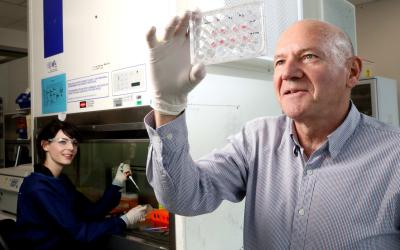
Unlocking the secrets of sex hormones in breast cancer
One in eight Australian women will be diagnosed with breast cancer in their lifetime and seven women die from the disease each day in Australia1

Drilling down: discovering the origins of dental anxiety
Associate Professor Jason Armfield set out to explain the origins of dental fear and to understand why fear of the dentist is a serious psychological problem for many Australians. He developed a ‘dental anxiety scale’ that will help to identify and treat the condition across the world, leading to more people visiting the dentist and better population level oral health.

Starving bacteria—beating antibiotic resistance
Motivated by a desire to understand the molecular basis of key biological processes, Professor Abell saw an opportunity to use small molecules that selectively bind to bacterial proteins, as a potential mechanism for limiting bacterial survival.

Uncovering salt’s addictive nature
Dr Craig Smith and a team of scientists at the Florey Institute of Neuroscience and Mental Health’s Addiction Neuroscience Laboratory are investigating one of the receptors in the brain they think are responsible for those seriously rewarding feelings. Not only does this have the potential to help with obesity but it is closely linked with addictions to opioids such as heroin and could lead to a new group of targeted drugs.

Zinc on the brain for healthy aging
‘In Australia, 15 per cent of the population are aged 65+, estimated to grow to 21 per cent (8.4 million) by 20501.’

Australia leading the way on Alzheimer’s treatment
By 2036, the total cost of dementia is predicted to increase by 81 per cent to $25.8 billion in Australia1
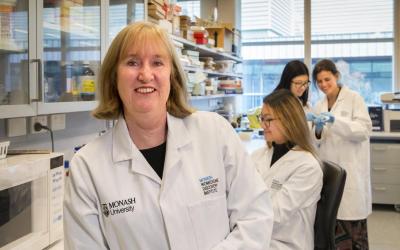
Protecting premature babies from kidney disease
‘18 per cent of all Indigenous Australian adults have chronic kidney disease—two times as likely as non-Indigenous Australians.’
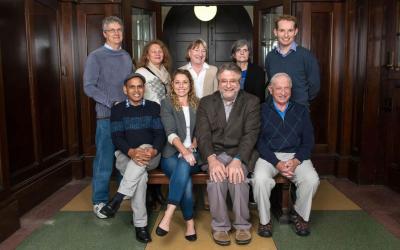
Forty years of mental health research
‘One in every ten mothers experience repeated episodes of major depression over their life course—on average, experiencing depression one in every six days of their lives.'
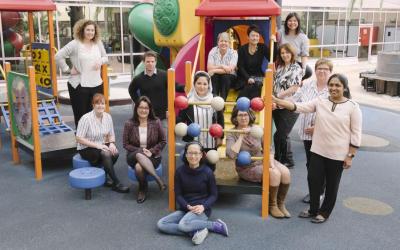
Saving lives—one vaccine at a time
‘There has been a 73 per cent reduction in children hospitalised from severe chicken pox infection since the introduction of the (varicella) vaccine to the National Immunisation Program in Australia in 2005.'1
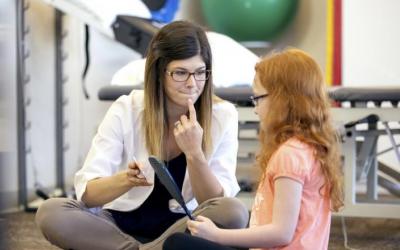
Guiding children through traumatic brain injuries
Professor Morgan is Lead of the Neuroscience of Speech research group at Murdoch Childrens Research Institute (MCRI) and Head of Speech Pathology at the University of Melbourne. She is also one of the guideline developers for MCRI’s first Clinical practice guideline for the management of communication and swallowing disorders following paediatric traumatic brain injury for children 0 to 18 years of age (communication and swallowing guideline).
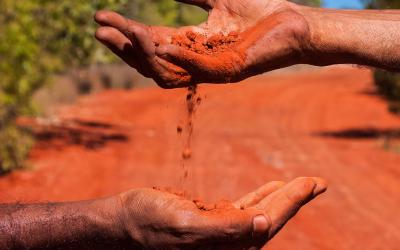
Extraordinary life of an Indigenous medical researcher
‘I have just felt really privileged for most of my life, I love my work, I love what I do, and I really enjoy the people I work with, and it comes from spending part of my career in medical research. It just gives you a lot of flexibility and opportunities that you don’t get with standard clinical hospital jobs or general practice.’
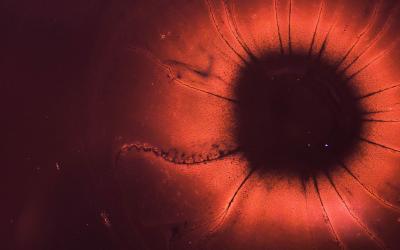
Excellence in mental health research for men
Suicide is the most common cause of death in Australians aged 15-44 years old—accounting for 35% of deaths in 15-24 year olds and 28.6% of deaths in 25-44 year olds (ABS, 2016)

Associate Professor Julian Elliott recognised for outstanding achievement
Associate Professor Julian Elliott is taking research beyond the clinic with ‘citizen science’ and subsequently scoops this year’s Commonwealth Health Minister’s Award for Excellence in Health and Medical Research.

Revolutionary breakthrough to ease discomfort and cost of fertility treatment
Led by UNSW’s School of Women’s and Children’s Health Associate Professor Robert Gilchrist, an international team of researchers have improved an existing treatment known as in-vitro maturation (IVM).

Diet matters for mental and brain health
Diets around the world have significantly shifted for the worse since the 20th century and this has had a highly negative impact on the health of the global population. At the same time, the burden of mental disorders, particularly depression, has increased significantly. Associate Professor Felice Jacka and her team have established new approaches to the prevention and treatment of mental disorders by looking at what we eat.

Sanguine advances In detecting colorectal cancer
Associate Professor Leah Cosgrove and her team have developed a simple blood test to diagnose colorectal cancer. A reliable, non-invasive blood test could augment the National Bowel Cancer Screening Program, either as an adjunct primary screen for those unable to do the stool test, or in triaging positive subjects to colonoscopy. This could help drive a significant reduction in colorectal cancer deaths in Australia.

Gluten for punishment: challenging non-coeliac gluten sensitivity
Professor Peter Gibson and his team set out to determine whether gluten causes problems in people who do not suffer from coeliac disease. The team found that short-chain carbohydrates called FODMAPs, not gluten, might be triggering symptoms such as bloating and stomach pain. The results have put some scientifically valid findings in this controversial area.
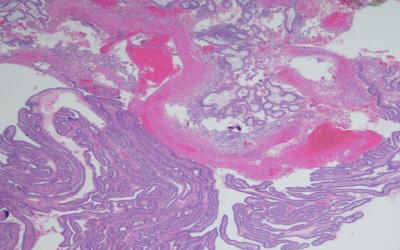
Ectopic Pregnancy Treatment: A Safer Way
Professor Stephen Tong and the team of investigators are revolutionising the treatment of ectopic pregnancy, meaning most women presenting with the condition could be treated medically, rather than surgically. Not only will this make treating ectopic pregnancies safer, easier and more effective, but it may save many lives across the developing world where surgery is not possible.
